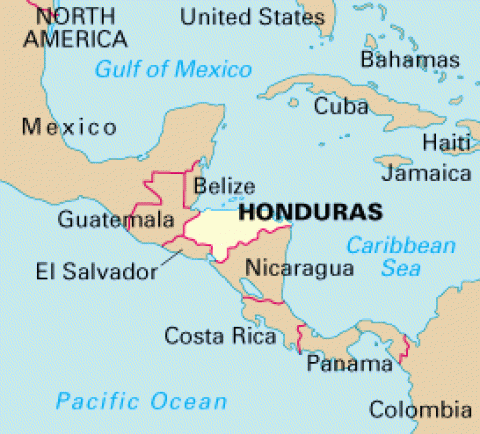"Clearly, the state department is well aware of Honduran law [regarding Bonilla's control over all police units]."
- Annie Bird, the co-founder Rights ActionA new investigation has further highlighted the culture of impunity that exists within the Honduran police force.
The Associated Press heard testimony that strongly suggests that people are being disappeared by roving groups of armed officers.
There are claims that the US Congress may be funding these units.
Last August, Congress held back $30m in Honduran aid precisely because of concerns over the human rights record of the country's top police officer, Juan Carlos Bonilla.
But that money was later restored on condition that it went to units not under Bonilla's control.
However, AP reports that Honduran law prohibits any police unit from operating outside the command of the chief of police.
Honduras has the highest murder rate in the world. Much of it is ascribed to gang violence. But rights groups say the chaos is also being used as a cover to target political opponents.
So, is the US state department misleading Congress about possible US funding for Honduran death squads?
Inside Story Americas, with presenter Shihab Rattansi, is joined by guests: Alberto Arce, the Honduras correspondent for Associated Press and the co-founder of Rights Action; and Annie Bird who's worked extensively in Honduras.
"According to gang sources just for the last month, we will have around 10 members of the 18 street gangs killed. Killed in the same kind of operative with these two cars a number of masked men, and most of them appear killed mostly only by one gun shoot in the back part of the head, some of them also disappear. The bodies appear six to eight hours after they were arrested, and we cannot identify arrest orders for any of these guys, so it looks like there is an intelligence work that it's been done, that tracks them through all the city, and they are conducting these kind of operatives at least two or three times per week....
Tegucigalpa is under curfew. It is full of police checkpoints. There is no way that 150 operatives of heavily armed men can move around the city if they don't have the logistics and coordination to move around without being stopped. It's both the logistics and the intelligence that only the police have."
Alberto Arce, the Honduras correspondent for Associated Press


Spread the word